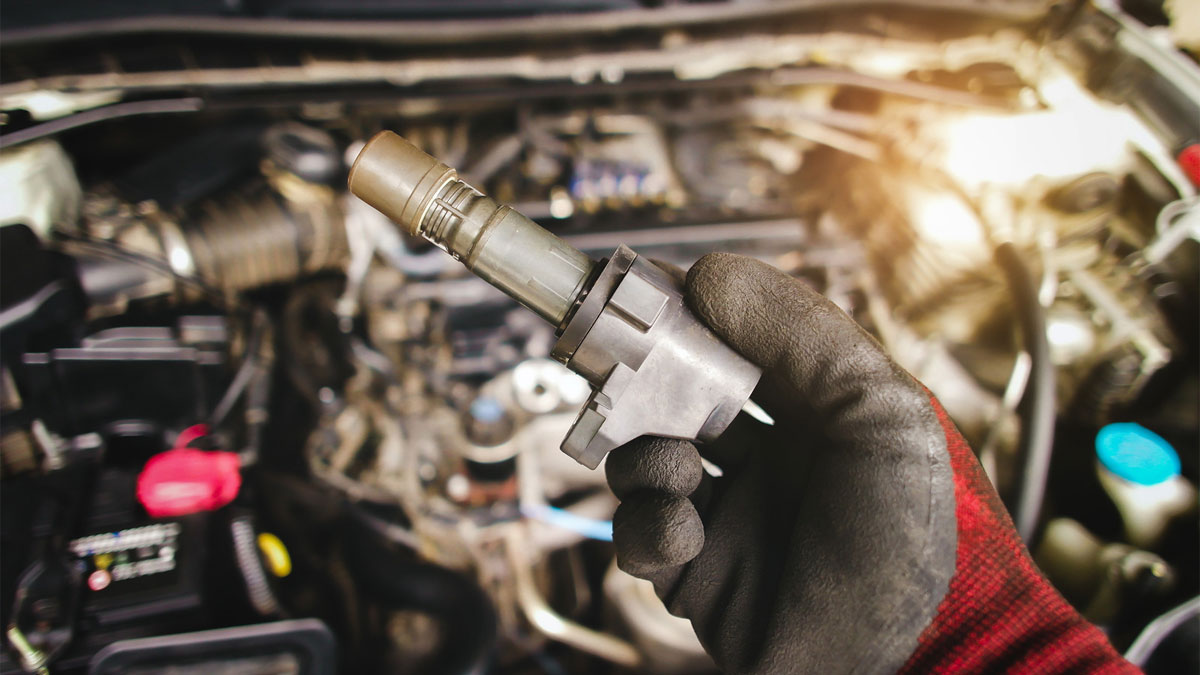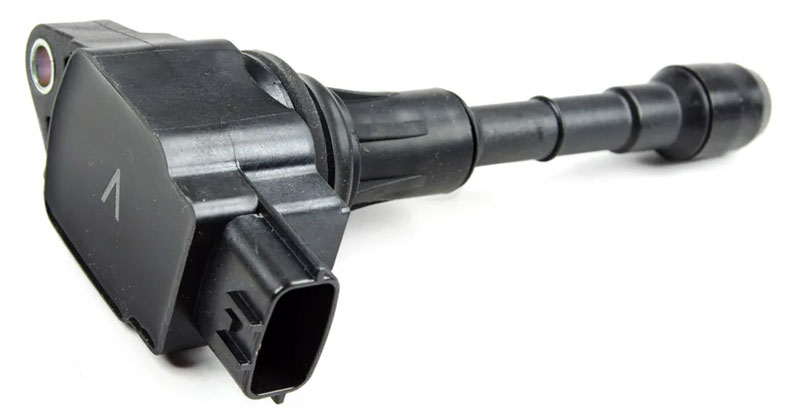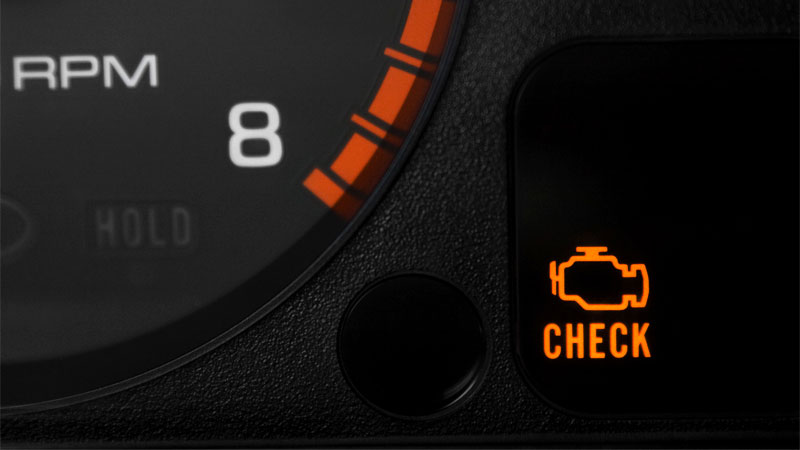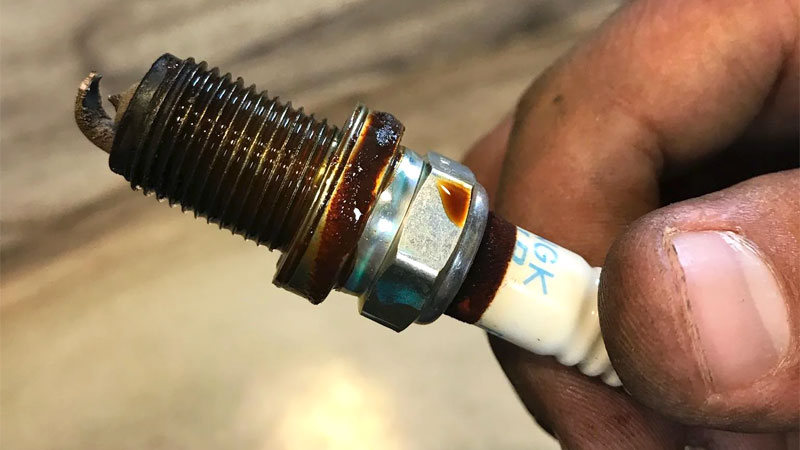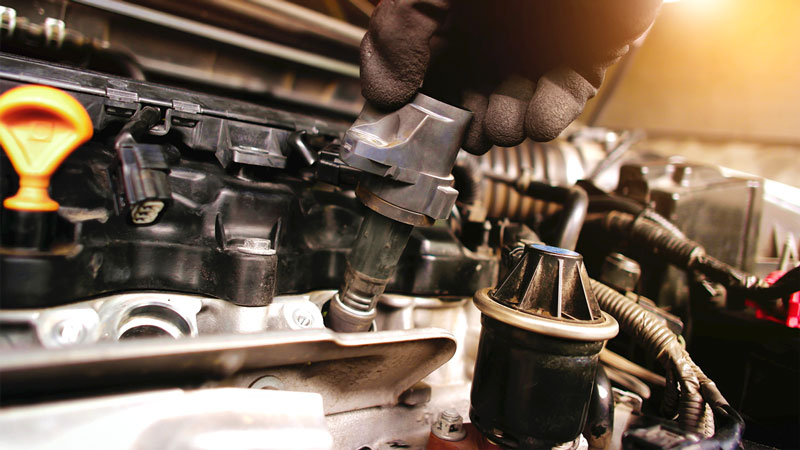A vehicle’s ignition system is made up of numerous components, each of which plays a pivotal role in facilitating an engine’s combustion process. The failure of one or more of these components can severely hamper engine performance as a whole, even potentially leaving one stranded along the side of the road with little immediate recourse.
One of the most vital of all ignition system components is the ignition coil. This apparatus converts relatively low voltage electricity derived from a vehicle’s battery, into high-voltage capable of being dissipated by a vehicle’s spark plugs. During this dissipation of energy, a volatile mixture of air and fuel is ignited within each respective combustion chamber.
Unfortunately, like any electrical component, an ignition coil is prone to eventual failure, leaving one to contend with a host of troubling symptoms as a result. The ability to recognize these symptoms can prove helpful when attempting to diagnose the issue at hand, thereby expediting a vehicle’s eventual return to service.
Read on to learn more about the various symptoms associated with ignition coil failure, as well as how to address such issues, should they arise in the future.
See Also – 5 Causes of Oil in Spark Plug Wells
What Is an Ignition Coil?
An ignition coil is a device used to transform a vehicle’s supply battery voltage into high-voltage electricity, intended for rapid discharge. Devices of this nature are typically described as step-transformers or induction coils.
The use of an ignition coil is required to facilitate combustion, as it is the only viable means of achieving sufficient electrical discharge.
In many ways, an ignition coil is perhaps best described as a temporary current storage device. However, as current is stored, it accumulates at an increasingly higher rate, until the moment of discharge.
The principle of electromagnetism is employed to allow this storage of current, while the repeated collapse of the resulting magnetic field increases the potential inductance of the coil.
Ignition Coil vs Coil Pack
At times, the term “ignition coil” is used in a somewhat generic fashion. This leads to a certain amount of confusion when attempting to decipher the difference between stand-alone ignition coils, cylinder-specific coils, and coil packs.
While each is ultimately responsible for delivering spark to an engine’s cylinders, these various components accomplish such a feat in slightly different ways.
Early stand-alone coils were used to deliver high-potential energy to an engine’s distributor, which then directed properly timed spark to each respective cylinder. Later came cylinder-specific coils, and coil packs. These later designs did not require the use of a dedicated distributor.
Cylinder-specific coils are as numerous as an engine’s cylinders and deliver spark to each spark plug via abbreviated plug wires. On the contrary, coil packs mount directly atop each respective spark plug, thereby eliminating the need for individual plug wires.
Both of these designs are still in widespread use across the automotive industry today.
Bad Ignition Coil Symptoms
The presence of a faulty ignition coil is often accompanied by a host of secondary symptoms, some of which tend to be relatively troublesome to deal with. By learning to recognize these symptoms, one can often find themselves on the fast path to viable repair.
The following are several of the most common symptoms associated with a failed ignition coil.
- Illuminated or flashing check engine light
- Reduced engine power
- Loss of fuel economy
- Intermittent stalling
- Hard starting
- Backfiring
- Jerking under acceleration
- Excessive engine vibration
Most Common Causes of Ignition Coil Failure
Ignition coil failure can originate from a host of potential underlying conditions, a number of which tend to be far more prevalent than others. Understanding the causes of ignition coil failure can prove helpful when attempting to prevent premature ignition coil failure in the future.
The following are several of the most common causes of ignition coil failure.
- Normal wear and tear
- Excessive vibration
- Abnormally high engine heat
- Compromised spark plugs
How Long Do Ignition Coils Last?
The ignition coils found in modern vehicles typically last 100k to 120k miles (or more). This could mean a vehicle could be on the road for 10+ years and not have an instance of ignition coil failure.
If you purchased your car new, you will likely not have to deal with replacement since most car owners don’t hold on to their vehicles that long.
Can You Drive With a Faulty Ignition Coil?
While it is possible to drive with a faulty ignition coil in many cases, doing so for extended periods of time is never advised. An engine in this state will run at less than peak efficiency, often leading to intermittent stalling or starting difficulties.
On top of that, a vehicle’s fuel efficiency often plummets when an ignition coil fails, leading to increased pain at the pump.
In the most severe cases, prolonged operation of an engine with a faulty ignition coil can actually do irreversible catalyst damage. This occurs when unburnt fuel is dosed downstream, allowing a catalytic converter’s internal media to superheat and deteriorate. As a result, one incurs a significant expenditure in both time and money, all of which would likely have been avoided.
In any event, a vehicle’s faulty ignition coil should be isolated and replaced as soon as possible. Doing so will likely prevent excess hardship, and mitigate the risk of being saddled with an even higher repair bill.
If you do not feel comfortable tackling such repairs yourself, an appointment should be made with a trusted automotive service center as soon as possible.
Ignition Coil Replacement Cost
The cost of having a vehicle’s ignition coil replaced can vary significantly and is largely dependent upon the particular year, make, and model of the vehicle itself. Both the actual cost of parts involved with such repairs and the labor fees incurred in the process can differ significantly from one end of the spectrum to the next.
Nonetheless, on average, one can expect to pay somewhere between $100-$350 to have their vehicle’s ignition coil replaced. Parts alone make up the bulk of this cost, ranging from $30-$250 in cost, while total labor costs seldom exceed $100.
Are OEM Ignition Coils Better Than Aftermarket?
Under most circumstances, one is far better opting for the purchase of OEM (Original Equipment Manufacturer) ignition coils, rather than those produced by various aftermarket brands.
Ignition coils of this type tend to be relatively hearty by design, and are engineered to bridge the exact spark gap required by the vehicle for which they are designed. This offers increased durability and efficiency, in a single package.
On the other hand, if you insist on purchasing aftermarket ignition coils, it is best to stick with offerings from reputable manufacturers, such as NGK, MSD, and Denso. After all, one should never attempt to cut corners for the sake of pinching pennies, when purchasing something as vital as replacement ignition coils.
Can You Replace Just One Ignition Coil?
It is certainly possible to replace just a single coil at a time when a defective coil is discovered. However, time and finances permitting, replacing an entire set of coils at once is likely the better alternative.
This is due to the fact that if one of an engine’s coils has reached the point of failure, it is likely safe to say that every other coil has incurred its fair share of wear and tear as well.
It is also worth mentioning that you should also replace each of an engine’s spark plugs and spark plug wires when replacing a full set of ignition coils. This is considered good operating practice, as worn or improperly gapped spark plugs can actually place additional strain on their corresponding coils. Poorly insulated spark plug wires can also have a similar effect.
- The History of the BMW M Coupe (the “Clown Shoe”) - Mar 26, 2024
- The History of the Ford Flex - Feb 28, 2024
- Can You Trade In a Car With Body Damage or Mechanical Issues? - Feb 21, 2024

